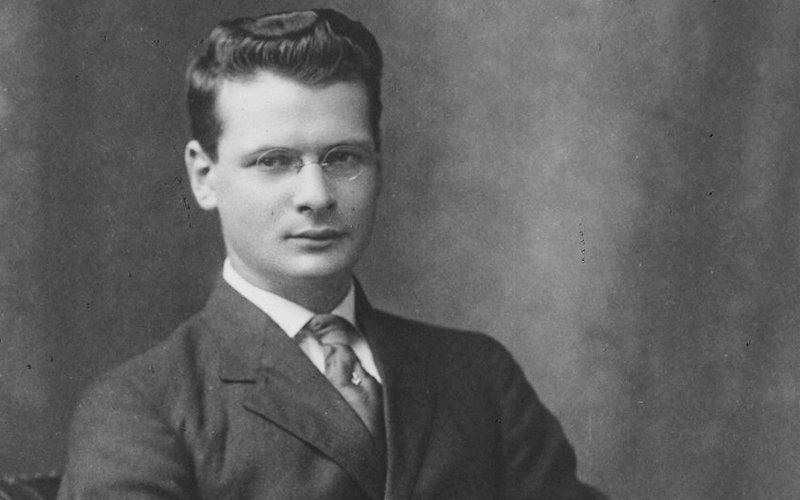
“I believe in diversity, and I think the real death of the United States will be when everyone is just alike.” Ralph Ellison, 1972
“Cultural pluralism, in the simplest of terms, is the idea that diversity is the true genius of American culture,” said Michael Steiner, professor emeritus of American Studies at Cal State Fullerton and author of the recently published book, “Horace M. Kallen in the Heartland: The Midwestern Roots of American Pluralism” (Kansas University Press, 2020). “Ellison’s words describe the firm beliefs of people I’ve been researching over many years.”
Developed as a concept in the early decades of the twentieth century by Jewish-American philosopher Horace Kallen, cultural pluralism was a forceful response to the white racism and rabid xenophobia that erupted during the years surrounding the First World War.
“Cultural diversity is as vital today as it was a century or more ago,” Steiner said. “The fear- mongering, hate speech and demands for 100% Americanism that our great-grandparents witnessed continues today. A new authoritarian era of closing borders, building walls and demonizing people of color has erupted, and today’s Black Lives Matter protests make Kallen’s work more relevant than ever.
Kallen (1882-1974), grew up poor in Boston. His father, an Orthodox rabbi, expected his son to follow in his rabbinical footsteps. Kallen rebelled against his authoritarian father, was accepted at Harvard, and began his rise as a philosopher in his own right.
Cultural pluralism … is the idea that
diversity is the true genius of American culture.
“Kallen developed his vision of pluralism during the years he taught at the University of Wisconsin (1911-18) and traveled throughout the Midwest,” Steiner said. “My book shows that he was inspired by the Midwest’s diversity, and with the coming of the First World War he published the idea of cultural pluralism — a concept that still reverberates in our culture.
“Rather than forcing immigrant groups into a uniform American mold or an obliterating melting pot as demanded by authoritarians like Theodore Roosevelt and Woodrow Wilson, Kallen, along with pluralists Jane Addams, W.E.B. Du Bois, and Alain Locke, believed that America is at its best when it encourages groups to cultivate their distinctive social worlds and create a mosaic of interacting parts,” Steiner said.
Kallen wasn’t the first to embrace this ideal but was one of the first to give it a name. As early as 1867, in fact, African American statesman Frederick Douglass foresaw the United States as an all-embracing “composite nation” composed of cultures from every continent of the world.
“Kallen was an engaging, outgoing man, and many people influenced his idea. One person in particular shaped his life and thoughts,” Steiner said. “As a graduate student at Harvard in 1906, Kallen exchanged ideas about cultural identity with a brilliant African American undergraduate, Alain Locke. A year later, Locke went to Oxford as the first black Rhodes Scholar, and Kallen was there doing post-doctoral research. The two formed a deep and complicated relationship that lasted nearly 50 years until Locke’s death in 1954.
“Their friendship intensified in England as Kallen became increasingly aware of anti-Semitism and Locke experienced double prejudice for being both gay and black. It was during this three-year period at Harvard and Oxford that the young philosophers debated issues of identity and the term ‘cultural pluralism’ cropped up in their conversations.
“Locke achieved fame as a founder of the Harlem Renaissance in the early 1920s, and Kallen became known for publishing the concept of cultural pluralism during the same period,” Steiner continued. “Locke’s role in the birth of this idea and influence in urging his Jewish friend to include African Americans in his theory remained largely unacknowledged throughout Locke’s lifetime. Their complex friendship is a significant chapter in Jewish-Black relations and American race relations in general.”
“More than a century ago, Kallen, Locke and others urged us to celebrate cultural differences and to embrace pluralism as the highest form of patriotism, and I trust that by continuing this good fight we can begin, in James Baldwin’s famous words, to ‘end the racial nightmare, achieve our country and change the history of the world.'”
Contact: Valerie Orleans, vorleans@fullerton.edu